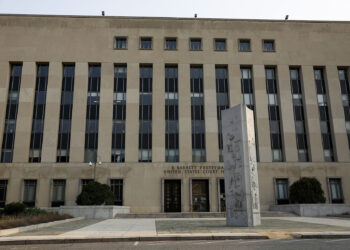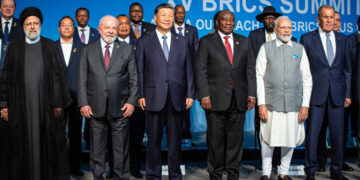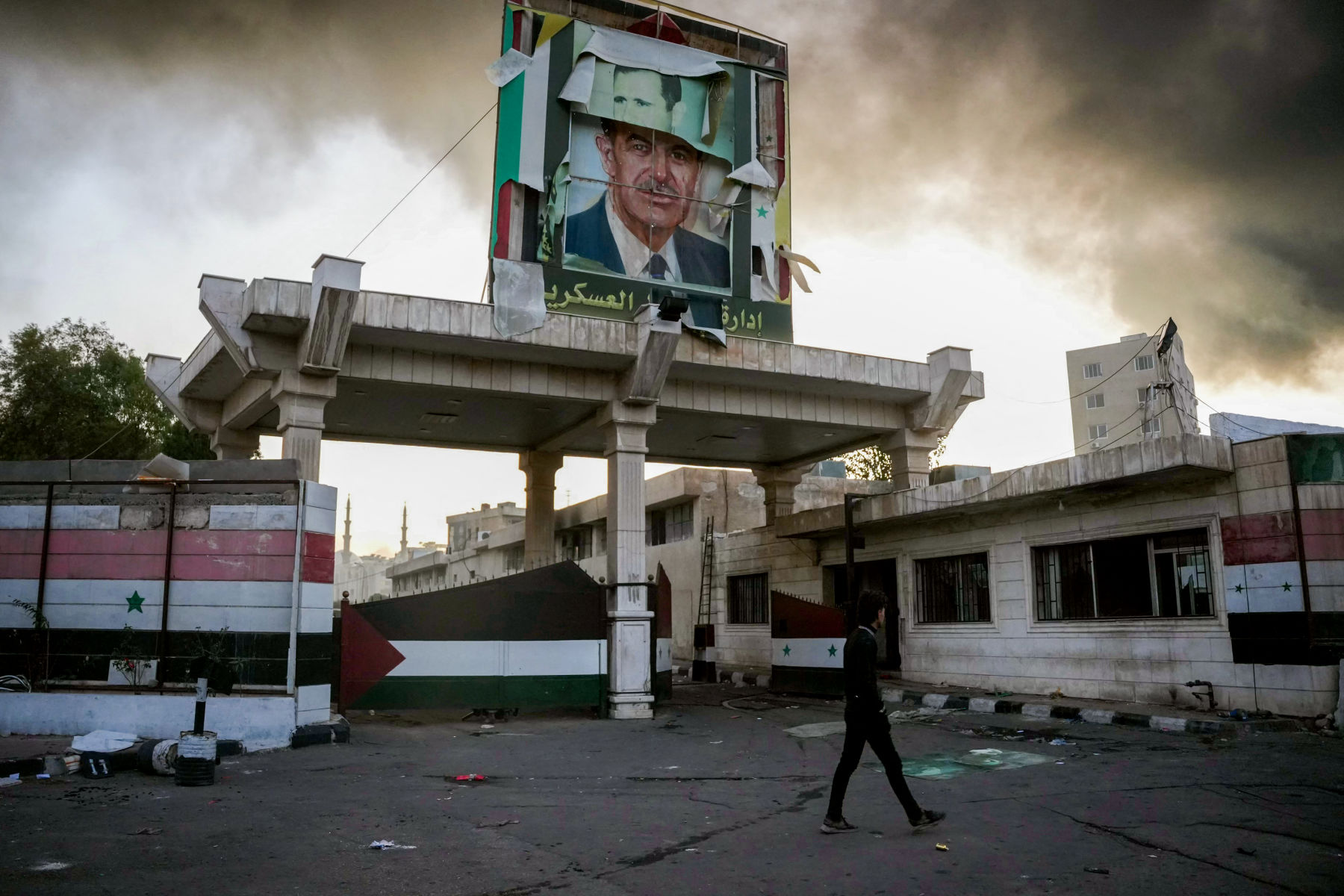Sajjad Safaei is a postdoctoral fellow at the Max Planck Institute for Social Anthropology in Germany. His writing has appeared in Foreign Policy, Responsible Statecraft, Al Jazeera, Le Monde and The National Interest, among other outlets.
Since widespread protests erupted in Iran in September, opponents in the United States of the moribund nuclear agreement with Iran—and of any U.S. diplomatic engagement with the Iranian government—have seized on its human rights violations, including its increasingly brutal suppression of the demonstrations, as a vindication of their position. Especially on the nuclear issue, they argue, it is morally questionable to talk to a government that violates the rights of its citizens, as symbolized by the death of 22-year-old Mahsa Amini in the custody of the so-called "morality police" enforcing Iran's mandatory hijab law.
Republican Sen. Tom Cotton, one of the most outspoken Iran hawks in Washington, who has been opposed to the nuclear agreement since it was signed in 2015, exemplified this line of thinking in a speech on the Senate floor in late September. "In the murder of this young woman," he warned, "we see the true face of the ayatollahs." Cotton marshaled an old talking point among Republicans and other critics of the nuclear agreement, claiming that President Joe Biden—like President Barack Obama before him—"hopes to enrich" Iran's regime "with hundreds of billions of dollars" and "appease" it "with yet another terrible nuclear deal."
Amid a litany of familiar Republican rhetoric about the U.S. and Iran, Cotton declared that "Democrats are once again selling out those brave Iranian protesters" and that "Congress should stand with the Iranian people and prevent another betrayal by a Democratic president."
If talks to salvage the nuclear agreement are truly over, an opportunity to provide relief to ordinary Iranians has been lost.
- Sajjad Safaei
Never mind that diplomatic talks to revive the nuclear agreement, which had inched along over the past two years, stalled before Iran's protests began, with every reported breakthrough seemingly met by a new Iranian demand. Or that Biden's Iran envoy, Robert Malley, has since said that the administration is not going to "waste our time" on nuclear diplomacy as Iran is cracking down on protesters, while also supporting Russia's war in Ukraine and maintaining a hard line on its nuclear program anyway. "It is not on our agenda," Malley said recently at an event hosted by the Carnegie Endowment for International Peace. "We are not going to focus on something which is inert when other things are happening."
A senior official in the Biden administration went even further, telling Axios that the diplomatic situation had "fundamentally changed" and "even if Iran came back to the table today and said it wanted a nuclear deal, the U.S. was unlikely to move forward." The administration "is already looking at the situation as if there is no nuclear deal," according to this official.
If talks to salvage the nuclear agreement—which President Donald Trump pulled the U.S. out of unilaterally and tried to torpedo with renewed sanctions on Iran—are truly over, an opportunity to provide relief to ordinary Iranians has been lost. Despite the usual criticisms from Republicans in Washington, and other opponents of the nuclear deal, diplomatic engagement with Iran does not, in fact, betray the Iranian people. If anything, the ongoing demonstrations highlight the need to intensify diplomacy with Iran rather than keep isolating it. U.S. sanctions have devastated and disempowered the Iranian middle class, the pillar of the country's embattled pro-democracy movement. A restored nuclear deal that results in easing sanctions on Iran will ultimately benefit the very people still protesting for their rights today.
While they were triggered by Amini's death, the protests are not only against Iran's draconian hijab law and how brutally it is enforced. They have also become a vehicle for expressing years of pent-up anger and frustration over economic hardships, the stifling of basic rights and freedoms, and the growing suppression of political dissent. Authorities have rounded up political activists and journalists in an attempt to cripple a protest movement that, in fact, has no centralized leadership. Scores of protesters have been killed after riot police and security forces were heavily deployed onto the streets. To quell the demonstrations, the government has also limited Iranians' access to the internet, as well as messaging and social media platforms like WhatsApp and Instagram.
Although it may look more unlikely than ever now, renewed diplomacy aimed at reviving the nuclear agreement would lead to sanction relief that, instead of rewarding "the ayatollahs," would benefit the most vulnerable people in Iranian society, many of whom have been protesting on the streets in recent weeks.
Sanctions are not the only cause of Iran's economic woes. The state's mismanagement and corruption have also contributed immensely to the dire economic situation. But sanctions have drastically accelerated mass pauperization in the country. Since sanctions were reinstated under Trump, the number of poor Iranians rose by at least 10 million between 2018 and 2020, from 22 million people to 32 million, shrinking Iran's middle class, as economist Hadi Kahalzadeh has noted in Foreign Affairs. Under renewed sanctions, the number of women in the labor force has also fallen by more than 2 million.
"Often viewed as the primary engine of social change [in Iran], middle-class women have seen their lives and hopes crushed by the Trump administration's sanctions, and it is hard to see what the United States gains by this devastation," Azadeh Moaveni and Sussan Tahmasebi wrote last year. "The decimation of Iran's economy is unfolding in the lives of the very constituency that has been working for reform and liberalization."
Iranians themselves, including many braving bullets to protest in the streets for weeks, will continue to bear the cost of sanctions far more than their own government.
- Sajjad Safaei
Sanctions have not just undermined the basic human rights of Iranians by diminishing their access to food, medicine and even housing; they have also dealt a severe blow to the people advocating for democratic change in the country. By economically disempowering Iranians, especially those in the middle class, sanctions have sabotaged their wider struggle for political rights and civil liberties in Iran, including the rights of women and ethnic minorities.
It is little wonder, then, that in 2015, many of Iran's most renowned civil rights and pro-democracy activists, both in the country and abroad, expressed their firm support for the nuclear deal before it came into force and even urged U.S. lawmakers not to kill the deal.
Sanctioning and isolating Iran also restricts even the most basic engagement between Iranian civil society and the rest of the world, playing into the hands of Iran's hard-liners. Were it not for Trump's "maximum pressure" campaign, Iran's most regressive factions would have found it far more difficult to hold one of the most unfree and lackluster presidential elections in the 43-year history of the Islamic Republic, which paved the way for the election of Ebrahim Raisi as president in June 2021. Since Raisi's election, the rights of all Iranians, but especially women, have been further restricted by the authorities.
If the Biden administration is sincere that it "stands with Iranian women and all the citizens of Iran who are inspiring the world with their bravery," it should not abandon diplomacy with the Iranian government once and for all. Sanctions have punished all Iranians, while doing little to restrict the government from advancing its nuclear program. Iranians themselves, including many braving bullets to protest in the streets for weeks, will continue to bear the cost of sanctions far more than their own government.





































